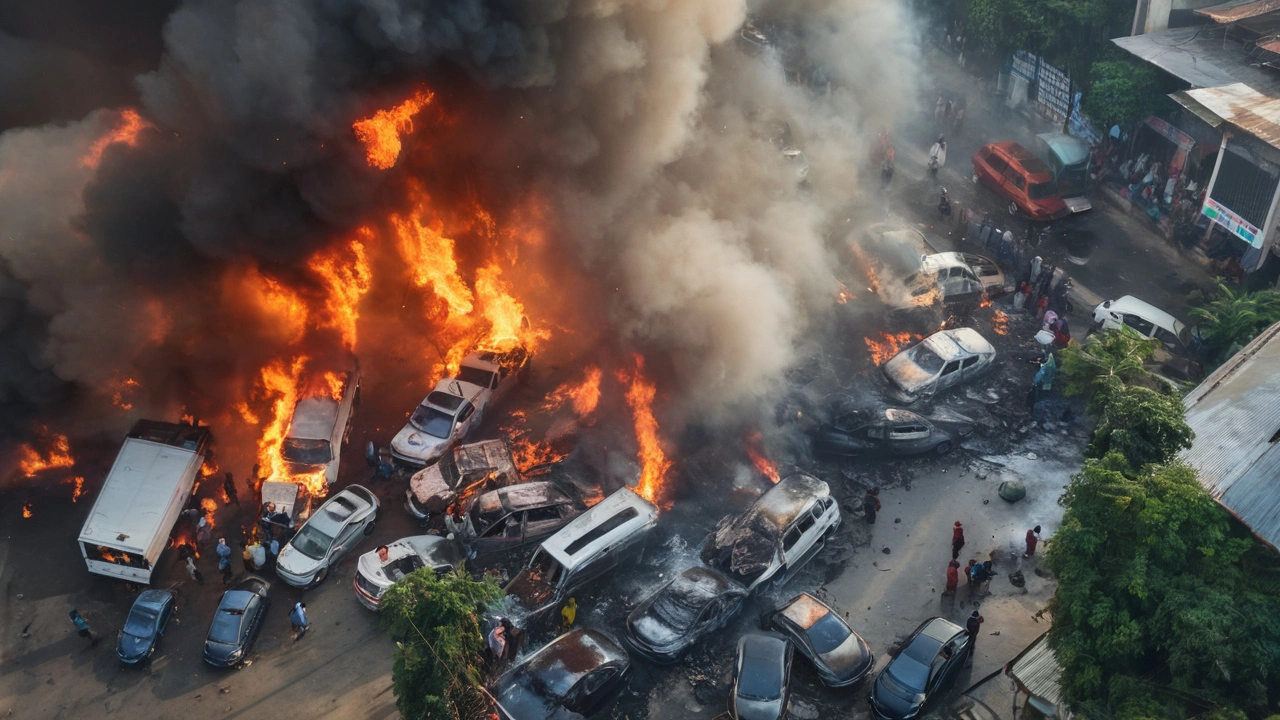Unfolding Crisis in Bangladesh and Its Impact on Hindu Minorities
The political and social turmoil in Bangladesh has brought immense suffering to its minority communities, particularly the Hindu population. Recent months have witnessed a disturbing rise in targeted violence and discrimination against Hindus, exacerbating their already precarious situation. Reports of harassment, assault, and displacement have become alarmingly frequent, painting a grim picture for this beleaguered community.
The Hindu minority in Bangladesh, comprising approximately 8-10% of the country's population, has long faced systemic issues of discrimination and violence. Historical grievances and socio-political dynamics have cultivated an environment where Hindus live under constant threat. While the persecution of religious minorities is not new, the present crisis has intensified these issues, making the need for urgent intervention ever more pressing.
Recent Incidents of Violence and Harassment
Recent incidents have underscored the severity of the situation faced by the Hindu community in Bangladesh. Homes and temples have been vandalized, and individuals targeted for their religious beliefs. In several reported cases, Hindu women have faced gender-based violence, further deepening the trauma of this persecuted group. These acts of brutality are not isolated but part of a broader pattern of targeted aggression, showcasing a systematic attempt to destabilize and marginalize the Hindu minority.
Notably, during religious festivals, Hindu communities have been particularly vulnerable to attacks. Reports from various districts in Bangladesh reveal a distressing trend of coordinated assaults on celebratory gatherings, leading to casualties and widespread fear. This recurring violence underscores the fragile and hazardous environment in which the Hindu minority exists, constantly fearing for their lives and heritage.
The Case for the Citizenship Amendment Act
The Citizenship Amendment Act (CAA) was enacted in India with the intention of providing citizenship to persecuted religious minorities from neighboring countries like Bangladesh, Pakistan, and Afghanistan. The act specifically includes Hindus, Sikhs, Buddhists, Jains, Parsis, and Christians who have faced religious persecution. Amidst the crisis in Bangladesh, the relevance of the CAA has come under sharp focus, highlighting its potential as a humanitarian measure offering refuge to those fleeing persecution.
The CAA represents a legal framework designed to acknowledge and address the plights of minorities in the region. For persecuted Hindus in Bangladesh, the act could serve as a life-saving provision, allowing them to find safety and rebuild their lives in a more secure and supportive environment. Its implementation has the potential to alleviate the chronic insecurity faced by these communities and offer them a dignified existence.
Criticism and Advocacy
The enactment of the CAA has not been without controversy. Critics argue that the act discriminates on the basis of religion by excluding Muslim refugees and failing to adhere to the secular ideals of the Indian Constitution. However, proponents of the CAA contend that the act is a targeted measure to protect minority groups explicitly recognized as vulnerable to religious persecution in their home countries. The current crisis in Bangladesh serves as a poignant example of the necessity for such legislation.
Advocates for the CAA emphasize the moral and ethical responsibility to protect and provide refuge to those fleeing persecution. For Hindu minorities enduring unthinkable violence and trauma in Bangladesh, the act represents a glimmer of hope for a safer, more stable future. By offering a legal pathway to citizenship, the CAA stands as a potential countermeasure to the systematic persecution these communities face and upholds the humanitarian values of providing asylum to the oppressed.
Addressing the Suffering of the Hindu Minority
As the crisis in Bangladesh persists, the international community's spotlight on the issue is crucial. Humanitarian organizations, governmental bodies, and civil society must rally to address the suffering of persecuted minorities, ensuring their protection and well-being. The Hindu minority in Bangladesh urgently needs both immediate relief and long-term solutions to escape the violent cycles of discrimination and fear.
Implementing the CAA effectively could play a pivotal role in this context, offering a structured and legal refuge for those in dire need. Alongside this, diplomatic efforts and international pressure must be sustained to hold the perpetrators of violence accountable and urge the Bangladeshi government to protect all its citizens, regardless of religious affiliation.
Conclusion
The unfolding crisis in Bangladesh starkly highlights the vulnerabilities and challenges faced by the Hindu minority. With targeted violence and discrimination becoming more widespread, the urgency to implement protective measures like the Citizenship Amendment Act cannot be overstated. The CAA offers a lifeline to those fleeing persecution, promising safety, dignity, and the right to rebuild their lives away from relentless violence. In these challenging times, proactive steps to safeguard vulnerable communities and uphold humanitarian principles are not just necessary but a moral imperative.


Chris Snyder
Seeing the reports from Bangladesh really hits home 😊. The plight of Hindu minorities is not just a political issue, it's a human one. Many families have been forced to abandon their homes and even sacred places. International NGOs have documented dozens of cases where entire villages were displaced. This situation calls for immediate humanitarian assistance and solid legal pathways for refuge.